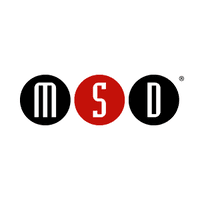
In Conversation: Bill Enright, Chief Executive Officer of Vaccitech
By Sarah Ellinwood
May 17, 2023
| This article is part of our In Conversation series, one of our ongoing People & Places Features. Go indepth with some of the most interesting people making impact across BioBuzz’s growing biohubs. |
Vaccitech is a clinical-stage biopharmaceutical company engaged in the discovery and development of novel immunotherapies for the treatment of chronic infectious diseases, cancer, autoimmune diseases, and other T cell-related diseases. Headquartered in the UK, Vaccitech also has a presence in Baltimore after acquiring Avidea Technologies in late 2021, and is in the process of moving the Baltimore location to Germantown.
The company’s unique platforms, ChAdOx, MVA, and SNAPvaxTM, are designed to harness the power of the immune system’s T cells and can be combined in prime-boost regimens, providing advantages in terms of tolerability, manufacturability, and efficacy.
Vaccitech was notably recognized as the Breakthrough Company of the Year for the 2022 BioBuzz Awards season, which “recognizes the companies who have pursued their mission with dedication and perseverance and built momentum towards commercialization with a substantial breakthrough this past year.” With many milestones already under their belt – and more on the way, Vaccitech is truly a force to be reckoned with.
Vaccitech will be honored at this week’s 3rd Annual BioBuzz Awards Celebration & Symposium in Baltimore, with Chief Executive Officer Bill Enright participating on one of the event’s panel discussions, “Raising Capital in 2023.”
Given the recent company momentum and upcoming awards, the BioBuzz team thought it would be a great opportunity to catch up with Bill and learn more about Vaccitech, why the company was deserving of “Breakthrough Company of the Year”, and get a sneak peak of what he plans to talk about on May 18.
Tickets are still available for the 3rd Annual BioBuzz Awards event. Learn more and purchase here: https://biobuzz.io/2022-biobuzz-awards-celebration/
Tell us more about Vaccitech’s story and the company’s approach.
Vaccitech was spun out of the University of Oxford in 2016 based on a unique viral vector platform strategy. We’re using multiple platforms that apply to the immune system in different ways to get a better immune response and in turn develop therapies that address significant unmet needs Our founders, Adrian Hill and Sarah Gilbert, did a lot of work at Oxford looking at viral-based platforms, RNA, DNA, proteins, and different combinations of the above to generate the best T cell response to fight disease.
With our intricate knowledge of T cell biology we focus on the diseases where we know T cells have a significant role in disease development/progression. This includes chronic infectious diseases like Hepatitis B and human papillomavirus or HPV, certain types of cancers, such as prostate and lung cancer and immune-mediated diseases such as Celiac. The platforms that we have developed – ChAdOx, MVA, and SNAPvax, are all designed to prime and stimulate certain T cell responses for different situations to induce or suppress an immune response.
We currently have nine pipeline programs moving forward and one approved product on the market, Vaxzevria, which is a COVID-19 vaccine out-licensed to AstraZeneca through the University of Oxford.
What would you say is Vaccitech’s “Special Sauce” compared to other companies out there?
I’ll use our HBV program as an example. The way we designed our platform technologies make them really good at inducing T cell responses, especially our adenovirus-based platform (ChAdOx).
The problem most often seen is that the initial adenovirus response is very high, but short-lived. We overcome this with a second immunization with an attenuated Vaccinia virus (MVA) that boosts and expands the T cell response against the target antigen, resulting in a longer-lasting effect.
Notably, using this platform we have developed the first immunotherapy in the HBV space that shows you get a sustained decline in surface antigen – this is the only molecule we’re aware of that does that. We presented promising data on this at AASLD (American Association for the Study of Liver Diseases – The Liver Meeting®) last fall and plan to present additional data at EASL (European Association for the Study of the Liver) next month.
What also makes us special are our people and culture.
As CEO, my focus is three things: 1) responsibly pushing immediate projects across the finish line; 2) positioning us for where we want to be in the future, and; 3) identifying who we are, our culture. With that in mind, establishing and nurturing the culture is a huge part of my role as CEO.
We’ve worked hard to establish open, transparent, and respectful communication where we can talk to each other with honesty and integrity. We also value diversity – our C-suite is 50% women, and women make up more of our workforce than men. We really take pride in this – welcoming and supporting diversity of ideas and perspectives drives the best innovation. Furthermore, we also ensure pay equity across the board.
What do people enjoy most about working at Vaccitech, and what are your near-term hiring plans?
Like everyone in this space, we’re in it because we want to help people. For us, our team members have been able to see that effort pay off. Epidemiologists now estimate that the COVID-19 vaccine we helped to develop, Vaxzevria, saved more than 6 million lives in the first year of administration.
Most biotechs don’t make it to that point – it’s a huge morale boost to the team to see something they worked on help so many people around the world especially during a global pandemic. It’s a reminder of what we can achieve as we continue driving our pipeline forward.
Our company is currently at approximately 120 people worldwide, and we’re looking to grow to 150 by the end of this year across the US and the UK.
What does the “Breakthrough Company of the Year” award mean to you, and what are you most looking forward to at this week’s event?
It really means a lot to us. We thrive on innovation, and to know that our company is being recognized for its accomplishments is very exciting.
I’m really looking forward to connecting with my peers in the biotech community and celebrating the accomplishments of our industry. . After three years of Zoom meetings and virtual events, it’s great to be able to gather and celebrate with people again.
You’re speaking on the “Raising Capital in 2023” panel at this week’s Awards event. Can you tell us more about what you plan to discuss?
The BioBuzz team has pulled together a great group of people from smaller companies, public companies, and VCs.
I’m representing the public company perspective. As you know, we had a really rich financing environment for a number of years, and starting in 2021/2022 it became more challenging. . Each of us are going to share insights on how we’re dealing with that shift, what the environment currently looks like, and when people anticipate the environment will change.
I’ve been in the life science business for 33 years. I’ve learned a lot of tough lessons during that time. But if I can share my perspectives and help save another person based on what I’ve learned about advancing new and needed therapies, I’m happy to do that. It’s all about helping the industry ecosystem and giving people perspectives they may not have thought about.
The past year has definitely been a struggle for biotechs, especially the smaller companies. As a veteran in the industry, what advice would you give to early-stage entrepreneurs to help them navigate through these turbulent times?
Be creative! If you really believe in your technology and approach, don’t give up.
I’ve definitely been through it and have done some interesting things in the past to keep companies moving both professionally and personally. I’ve gone a year without salary. I had to take out a second mortgage on my house. I sought non-dilutive funding and tax breaks. It’s really hard, but if you believe in your technology you’ll find creative ways to bring in money, even if it’s just enough to keep the company afloat for a bit longer until you reach that next milestone.
For Vaccitech, we worked hard to raise a strong Series B round and push the company to go public before the downturn. My board will tell you that I pushed them hard because I wanted to not leave any money on the table in case the seas got rough. It was challenging and they were concerned about dilution, but in the current situation it has paid off.
One of my early mentors told me something that has stuck with me: good companies get funded. That’s the motto I live by and the culture I try to create at Vaccitech: a good company, doing good work by good people committed to improving lives.
- About the Author
- Latest Posts
Sarah Ellinwood is BioBuzz’s Managing Editor. A scientist by training and a science communicator at heart, Sarah specializes in making complex concepts understandable, engaging, and exciting. She received her Ph.D. in molecular and cellular biology with a focus in infectious disease immunology from the University of Maryland and is passionate about all things related to scicomm, peer mentorship, and women in STEM.






